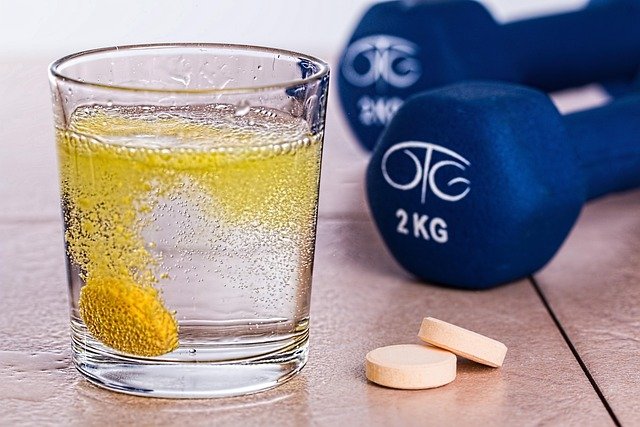Practical Home Routines to Boost Energy and Recovery
Small, consistent changes at home can have a big impact on daily energy levels and how well your body recovers after stress or exercise. This article outlines practical routines across nutrition, movement, sleep, hydration, and mental habits to support sustained energy, stronger immunity, and improved recovery without requiring expensive equipment or drastic lifestyle shifts.

Everyday routines shape how you feel from morning to night. Simple, repeatable habits at home—consistent meals, gentle movement, reliable sleep patterns, mindful breaks, and adequate fluids—create a supportive environment for energy and recovery. These routines influence immunity, the gut microbiome, stress responses, and how quickly muscles and the nervous system recover after exertion. The suggestions below are practical, evidence-informed approaches intended for general wellbeing and are adaptable for most people.
This article is for informational purposes only and should not be considered medical advice. Please consult a qualified healthcare professional for personalized guidance and treatment.
How can nutrition support energy and immunity?
Aim for balanced meals that combine a source of protein, healthy fats, fiber-rich carbohydrates, and colorful vegetables. Protein at each meal supports muscle repair and immune cell function. Fiber and diverse plant foods feed a resilient microbiome, which in turn influences inflammation and energy metabolism. Include regular small snacks if long gaps drain your energy: yogurt with fruit, a handful of nuts, or whole-grain toast with avocado. Limit large amounts of refined sugar and highly processed snacks that cause rapid blood sugar swings and post-meal fatigue. Meal prepping simple combinations can make consistent choices easier on busy days.
How does sleep affect recovery and performance?
Sleep timing and quality are central to repair and cognitive energy. Aim for a consistent bedtime and wake time, even on weekends, to stabilize circadian rhythms. Create a pre-sleep routine that lowers stimulation: dim lights, avoid intense screens for 60–90 minutes before bed, and choose calming activities such as reading or light stretching. If sleep is fragmented, focus on sleep hygiene first—cool, dark room, comfortable bedding, and reduced caffeine in the afternoon. Good sleep supports immune function, hormone regulation, and muscle recovery after workouts, making it foundational for both daytime energy and long-term resilience.
How does hydration influence energy and the microbiome?
Even mild dehydration can reduce alertness and physical performance. Regularly sip water through the day rather than waiting until you’re thirsty. Pair fluids with electrolytes during extended activity or heavy sweating—water plus small amounts of sodium and potassium helps maintain function. Hydration also affects digestion and the intestinal environment: adequate fluid and fiber intake help regular bowel function and support a healthy microbiome. Include hydrating foods like soups, cucumbers, and citrus, and monitor urine color as a simple hydration cue: pale yellow usually indicates sufficient intake.
How to structure fitness for sustainable recovery?
Balance movement across intensity and recovery. Combine moderate aerobic activity (brisk walking, cycling) with two to three sessions of resistance work per week to maintain strength and mitochondrial health. Schedule easy days and active recovery—light mobility, yoga, or walking—after intense sessions to promote blood flow and reduce soreness. Prioritize gradual progression in duration and load to prevent overtraining and immune suppression. Short, consistent workouts are often more sustainable than infrequent, intense sessions; consistency supports daily energy and long-term recovery capacity.
How can mindfulness reduce stress and speed recovery?
Daily practices that lower physiological stress improve energy availability and cellular repair. Short mindfulness routines—five to fifteen minutes of breath-focused meditation, body scanning, or guided relaxation—can reduce sympathetic nervous system activation and improve sleep quality. Integrate brief mindful pauses between tasks, and use simple breathing techniques when you feel overwhelmed. Managing stress also supports immunity: chronic stress can blunt immune responses and prolong recovery from illness or injury. Mindfulness need not be time-consuming to be effective; consistency matters more than duration.
How can wearables, prevention, and screening support recovery?
Wearable devices can provide useful feedback on sleep, heart rate variability, and activity patterns, helping to identify when you need more rest or hydration. Use them as tools for awareness rather than strict targets—trends matter more than daily fluctuations. Prevention and routine screening with healthcare providers help detect issues that affect energy, such as iron deficiency, thyroid function, or sleep disorders. Discuss any persistent fatigue with a clinician; targeted tests and preventive care can uncover treatable conditions that simple lifestyle changes alone may not resolve.
Conclusion
Boosting energy and improving recovery at home depends on consistent, manageable habits across nutrition, sleep, hydration, movement, and stress management. Small adjustments—balanced meals, steady hydration, regular sleep schedules, varied exercise with planned recovery, and short mindfulness practices—compound over time to improve immunity, support the microbiome, and reduce fatigue. Use wearable feedback and preventive screening as complementary tools when persistent issues arise, and consult a healthcare professional for personalized assessment and care.






